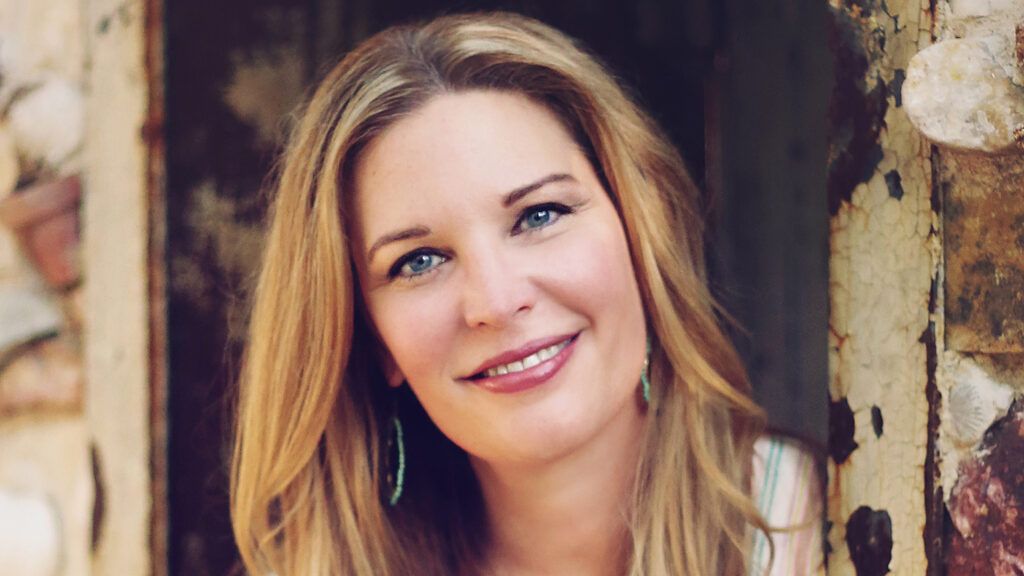Several years ago, author and speaker Jen Hatmaker felt overwhelmed by the excess in her life. Her home and schedule were jammed with unnecessary things and she longed to focus on what truly mattered. Along with her family, Hatmaker undertook a seven-month experiment from January to Thanksgiving, focusing on one area of excess each month.
“It changed our lives,” Hatmaker told Guideposts.org of the experience, which she chronicled in her book 7: An Experimental Mutiny Against Excess. “Once you look with intention [at] how you are consuming, you can’t unsee that.”
Hatmaker revisited the topic in the 2019 book 7 Days of Christmas, where she tackles the same topic areas, such as media and possessions, but this time with a lens toward avoiding the stress of the holiday season.
“It just occurred to me that I left out the one season where excess tends to rule the day, and takes us out of the joy of what’s meant to be, and that’s Christmas,” Hatmaker said.
The goal of the book is not rigidity or rules but a focus on generosity and joy.
“We may be surprised to discover that we can declutter the Christmas season and not lose anything at all,” Hatmaker said. “In fact, we’ll gain.”
Here are four of Hatmaker’s best tips for focusing on generosity this holiday season.
1. Focus on Four Gifts
After a particularly chaotic Christmas, filled with so many presents some were lost in the trash, Hatmaker rethought her approach to gift buying. Her family has now set the expectation that everyone can expect four things for Christmas: something you want, something you need, something to wear and something to read.
“We told them way in advance, and so we adjusted expectations,” Hatmaker said. “And we went really slowly through Christmas the next year, one at a time. Everything was a little bit more treasured, a little bit more valued.”
2. Choose Your Favorite Decorations
Holiday decorations can have different sentimental values for everyone in the family, making them especially difficult to let go of; but if you’re feeling overwhelmed with dozens of boxes of lights and garlands, Hatmaker recommends you start small. Instead of thinking about what you want to get rid of, start by only displaying your favorite pieces.
“[Take] a smaller approach,” Hatmaker suggested. “If you want to dial it into the number, you could say, ‘We’re going to pick our seven favorite decorations, or maybe the seven things we love the most to do in our house around Christmas.’”
3. Consider Your Traditions
Oftentimes, beloved family traditions can cause stress around the holidays, especially for women juggling kids, parties and endless cleaning and baking. Hatmaker recommends a simple solution: check in with your loved ones to see what traditions matter the most to them. Then skip any that don’t add much value.
“We assign far too much gravitas to some of the things that we’ve done in Christmas,” Hatmaker said. “‘Well, we always have done this, and the kids are going to be devastated if we don’t.’ Well, maybe they won’t.”
4. Skip the Wrapping Paper
One of the most life changing aspects of Hatmaker’s original experiment was the way it permanently changed her thoughts about consumption. The holidays aren’t just an opportunity to remove emotional excess, they’re also a chance to be conscious of waste. One simple way to do this is to gift some unwrapped gifts.
“Do something package-free!” Hatmaker said. “You can gift it in an interesting way, in an innovative way to do that. Unwrapped gifts [are] a thing.”
As an added bonus, unwrapped gifts can remove the anxiety around presents and return focus to quality time with loved ones.
No matter how you choose to celebrate this season, Hatmaker said being intentional is the first step towards more peaceful, quality time.
“There’s a lot of ways to declutter our minds first,” Hatmaker said. “And then how it has worked for us and our family was our hearts followed.”






